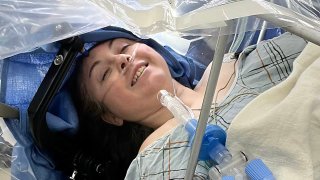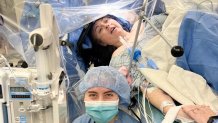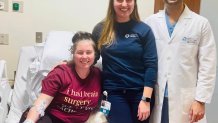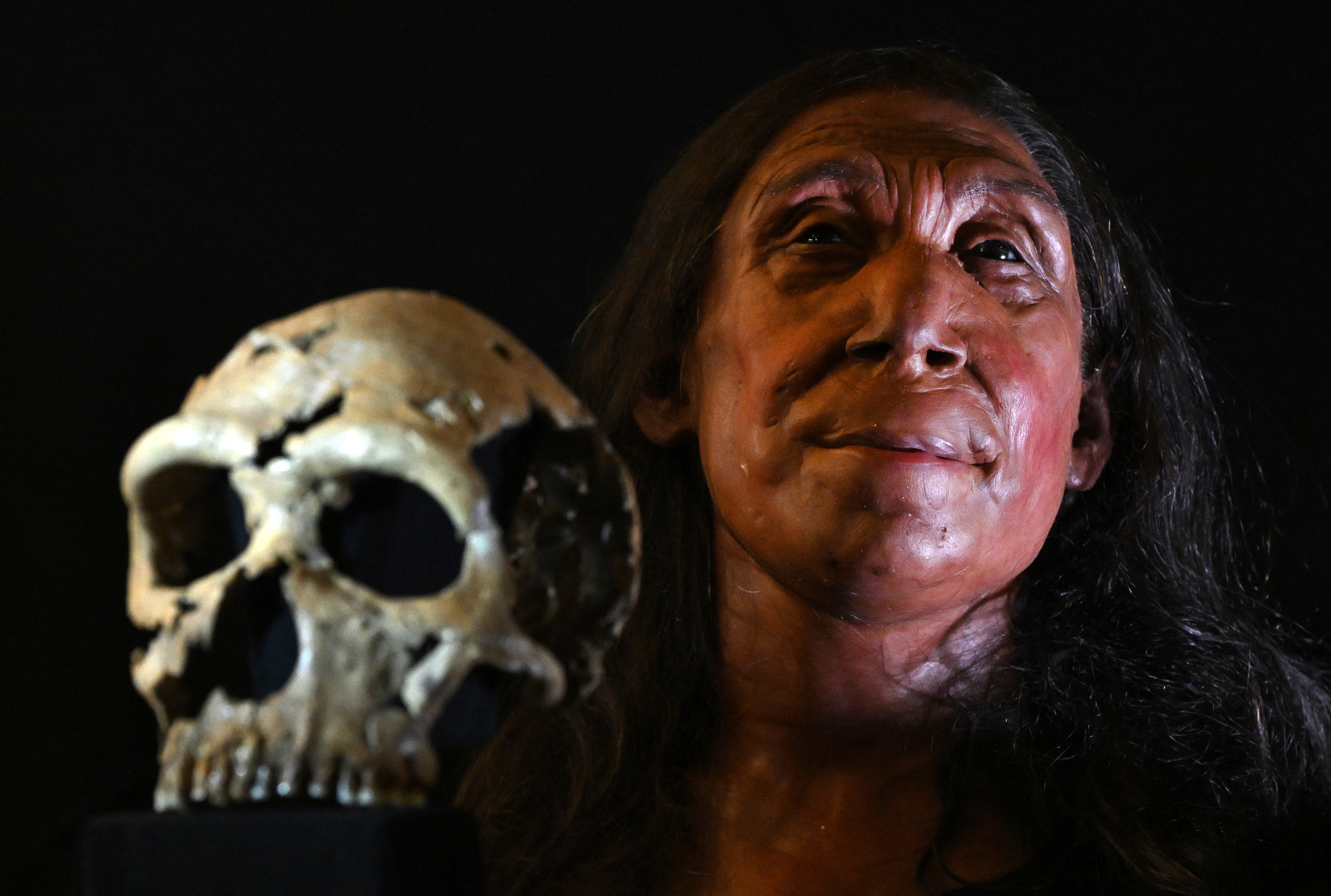
Selena Campione suffered from puzzling and debilitating symptoms for almost a year before she was scheduled to get brain surgery.
"I never had any medical problems before in my life," Campione tells TODAY.com. Last winter, the 36-year-old teacher and mother of two from New Jersey started experiencing tingling and numbness on the right side of her face and body. "Over a course of time, it kept getting worse and worse," she said.
After visiting multiple neurologists, getting different blood tests and MRIs, Campione still didn't have a diagnosis. While doctors did find a slight abnormality in the white matter of her brain, says Campione, it was “nothing they were too concerned about.”
Over the next few months, Campione would continue seeing specialists and get nine MRIs in total. She was put on countless medications for everything from seizures to multiple sclerosis, but nothing was helping, she says. "I was being led down different paths and different treatments, with lots of unknowns," says Campione.
We're making it easier for you to find stories that matter with our new newsletter — The 4Front. Sign up here and get news that is important for you to your inbox.
As time went on, her symptoms progressed. "My face would get so swollen it would get stuck and I wouldn't be able to speak ... then I couldn't feel anything on the right side of my body so I wasn't able to walk sometimes or use my right arm," Campione says.
The formerly healthy mom of two experienced episodes of dangerously high blood pressure and a high heart rate, which landed her in the hospital several times, she adds.

Finally, a friend referred Campione to Dr. Nitesh Patel, a neurosurgical oncologist at Hackensack Meridian Neuroscience Institute at Jersey Shore University Medical Center.
U.S. & World
The day's top national and international news.
"She's young, only 36 and having these very unusual symptoms, she felt like she was going crazy," Patel, who is also an associate professor at Hackensack Meridian School of Medicine, tells TODAY.com. Patel says he suspected Campione's symptoms were caused by a mass in the left side of her brain, which controls the right side of the body.
"After looking at my case, he phoned me and he mentioned a couple different brain tumor types that he thought were causing my symptoms," says Campione.
What came next was a total shock, she says. Patel advised her to undergo an awake craniotomy, or awake brain surgery.
In Camopione's case, the location of the tumor was close to the areas that control speech and movement of her right arm and leg, says Patel. “The real estate, so to speak, of the brain around the tumor is really critical,” Patel adds.
An awake brain surgery allows surgeons to "carefully map out is safe and what's not safe to do," Patel explains. "Before I make any irreversible steps, I can stimulate that part of the brain with a small electronic electric probe and get immediate feedback," says Patel.
Using a technology called Quicktome Connectomics, Patel could monitor Campione's speech and other parts of her brain to ensure he wasn't harming these areas while removing as much of the tumor as possible.
In order to do so, Campione would need to be alert and talking during the surgery. Typically, the patient may answer questions or count, but Patel prefers singing.
Singing allows the surgeon to continuously monitor the patient’s speech, rhythm, cadence, and ability to recall words without the pauses or interruptions which happen in a normal conversation, Patel explains. "The nice thing about singing is it covers all of that and in kind of a fun way," he adds.
When Campione was told she would have to sing, she immediately knew what to put on her surgery set list. "My daughters who are six and eight are huge Taylor Swift fans and it's playing all the time in my house, in the car," says Campione, adding that she is a fan (aka, a "Swiftie") as well.
Campione says she was initially "extremely frightened" about the surgery, but she knew singing Taylor Swift's songs would bring her some comfort. "It made me think of my children and my family. It made me feel like they're with me in the room and everything is going to be OK," says Campione.
On Jan. 31, Patel and his team carefully removed the tumor from Campione's brain while she sang along to Taylor Swift's “22”, “Style” and “Shake It Off,” among other hits. "The nurses were holding my hand and singing along with me, I think a couple were kind of dancing around on the side," says Campione, adding that she thinks she may have turned some doctors into Swifties as well.
"Knowing my daughters would (have been) singing right along with me got me through the surgery,” Campione said.

During an awake craniotomy, a medication is injected to numb everything above the eyebrows and behind the ears before opening the skull, Patel explains. Fortunately, the brain does not have any pain receptors, he adds.
"I still can't believe that I didn't feel anything ... I think falling down and cutting your leg hurts more than this, believe it or not," says Campione.
The surgery was a success and doctors were able to safely remove the benign (non-cancerous) tumor, called a low-grade glioma, from Campione's brain, says Patel.
Parts of the procedure were filmed, which allowed Campione to share her operating room concert with her daughters afterwards. "My older one thinks that I could have sang a little better, and my little one likes to tell her teacher and all her friends that Taylor Swift was in the operating room with me," says Campione.

"They were very scared at first, we all were, but now when they look at the videos they think it’s pretty cool," she adds.
Today, seven weeks after surgery, Campione is symptom-free and off nearly all of the medications she was taking before. "I am 100% better than I was, which is amazing, and I can't be more grateful for my doctors and the rest of the care team," she says.
Aside from routine checkups and monitoring, Campoine will be able to return to her normal life and hopes to return to work soon.
This story first appeared on TODAY.com. More from TODAY:



